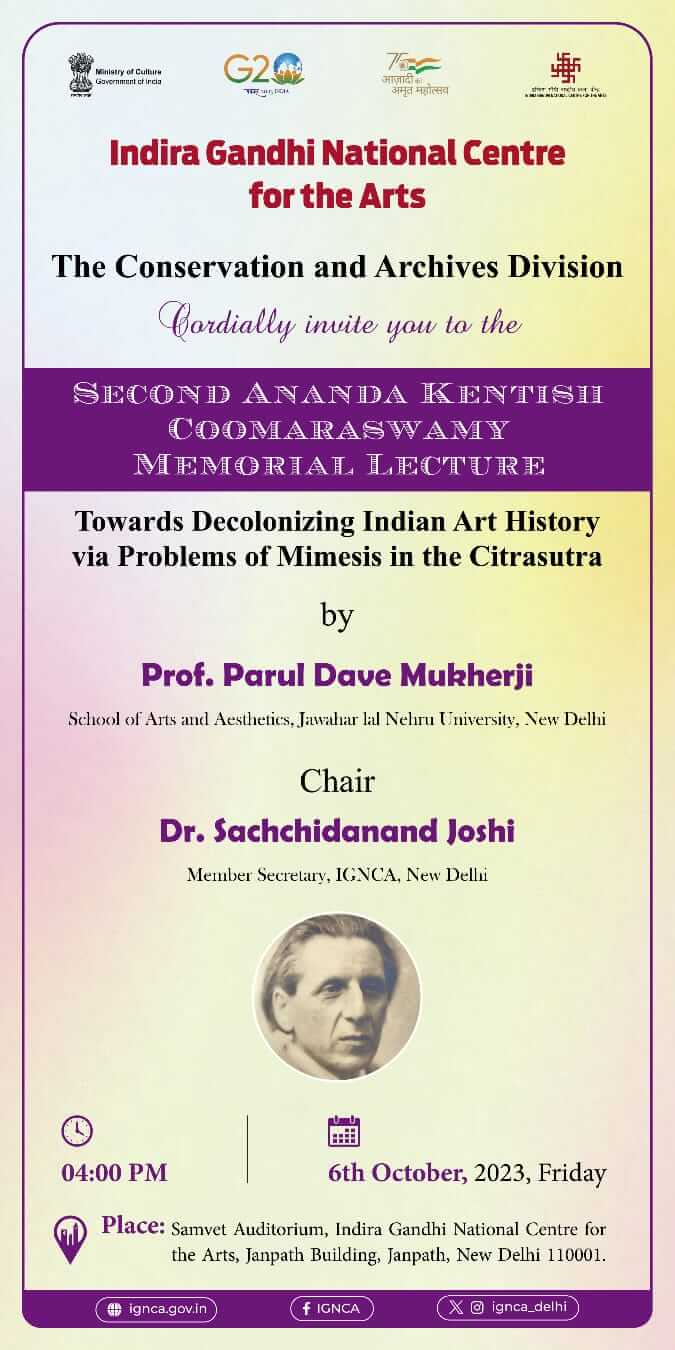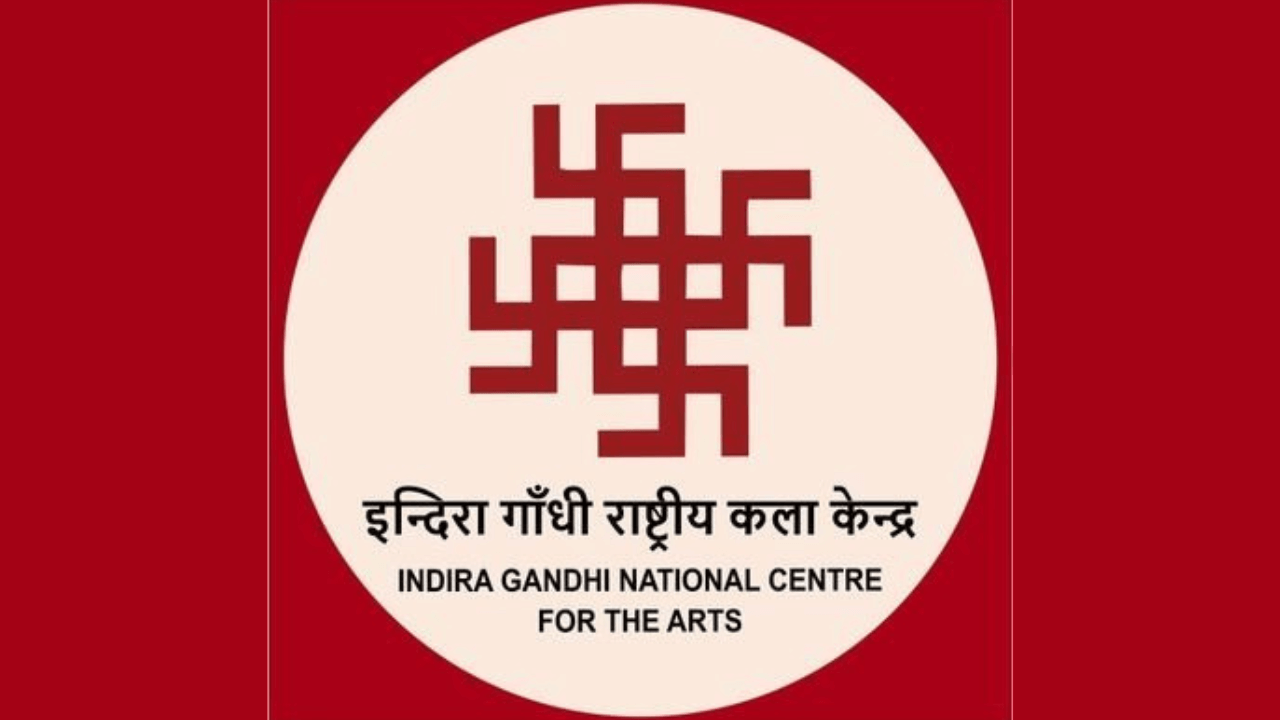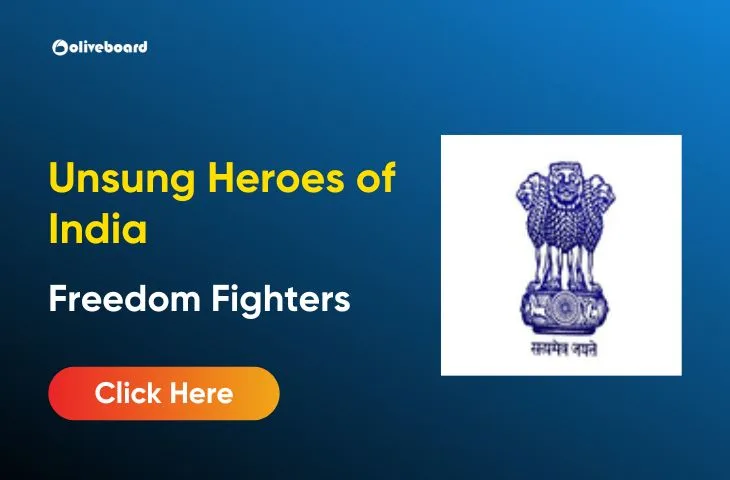The Indira Gandhi National Centre for the Arts (IGNCA) is hosting the Second Ananda Coomaraswamy Memorial Lecture on October 6th, 2023, to mark the 76th Death Anniversary of A.K. Coomaraswamy. The lecture’s topic is “Towards Decolonizing Indian Art History via the Problem of Mimesis in the Citrasutra”. It will be delivered by Prof. Parul Dave Mukherji from the School of Arts & Aesthetics, JNU, New Delhi. The session will be chaired by Prof. Sachchidanand Joshi, Member Secretary of IGNCA, New Delhi. This lecture serves as a tribute to A.K. Coomaraswamy and addresses important themes in Indian art history.
More About the News

The Indira Gandhi National Centre for the Arts (IGNCA) is organizing the second Memorial Lecture with the aim of acknowledging and honoring the significant and comprehensive contributions made by Ananda Kentish Coomaraswamy in the field of art and culture. The lecture, titled “Towards Decolonizing Indian Art History via the Problem of Mimesis in the Citrasutra” and delivered by Prof. Parul Dave Mukherji, underscores the importance of decolonizing Indian art history, a subject that A.K. Coomaraswamy explored extensively.
IGNCA’s acquisition of his collection, including books, art objects, paintings, photographs, and correspondences, reflects its commitment to preserving and promoting Coomaraswamy’s legacy. Coomaraswamy was a pioneer in recognizing and criticizing the impact of the Macaulayite education system on Indian culture and heritage.
Who was A.K. Coomaraswamy?
Ananda Kentish Coomaraswamy was indeed a pioneering art historian of the 20th century. His contributions to art history are characterized by interpretative eloquence and passionate advocacy for recognizing the indigenous roots of Indian art. Coomaraswamy’s work remains influential and inspiring in various fields of study due to its depth and unique perspective, making him a celebrated scholar and author whose legacy continues to be appreciated and studied by many.
Study of Indian Art History
The study of Indian art history has evolved over time. Initially, Western scholars applied European norms and methodologies to Indian art, which reflected a Eurocentric bias. However, in recent years, there has been a shift away from this bias. Scholars have become more familiar with Indian art objects and their unique aesthetic language, leading to attempts to understand and explain these objects from the perspective of the cultures in which they were created.
The upcoming lecture, titled “Towards Decolonizing Indian Art History via the Problem of Mimesis in the Citrasutra”. It aims to explore the concept of decolonizing Indian art history in contemporary times. It will revisit an often overlooked theory of Indian aesthetics known as anukarana vada or the theory of performative mimesis. This theory plays a crucial role in reevaluating and decolonizing the understanding of Indian art and aesthetics. It seeks to answer the question of what decolonizing Indian art history means today by examining the theory of performative mimesis and its implications for the visual arts of early India.
About The Indira Gandhi National Centre for the Arts (IGNCA)
The Indira Gandhi National Centre for the Arts (IGNCA) is an autonomous institution under the Union Ministry of Culture. It was established in 1987 in the memory of Indira Gandhi, the former Prime Minister of India. IGNCA is a multidisciplinary cultural center that aims to promote the understanding and appreciation of Indian arts and culture.
Divisions under IGNCA
- Research and Publication Division: This division conducts research on Indian arts and culture and publishes books, journals, and other scholarly materials.
- Museum Division: This division manages the IGNCA Museum, which houses a collection of over 200,000 objects from all over India.
- Cultural Activities Division: This division organizes and promotes a variety of cultural activities, such as exhibitions, performances, and workshops.
- Training Division: This division offers training programs in various aspects of Indian arts and culture.
IGNCA is a valuable resource for scholars, artists, and the general public. It provides a platform for the study and dissemination of Indian arts and culture. It helps to promote cultural understanding and appreciation.
- Weekly Current Affairs 2025 PDF For Bank, SSC, UPSC Exams
- Unsung Heroes of India: 10 Unknown Freedom Fighters You Should Know
- 26 December Current Affairs 2023 in English
- Daily Current Affairs 2025, Check Today’s Current Affairs
- April Month Current Affairs 2024, Download PDF
- June Month Current Affairs 2024, Download PDF

Hello, I’m Aditi, the creative mind behind the words at Oliveboard. As a content writer specializing in state-level exams, my mission is to unravel the complexities of exam information, ensuring aspiring candidates find clarity and confidence. Having walked the path of an aspirant myself, I bring a unique perspective to my work, crafting accessible content on Exam Notifications, Admit Cards, and Results.
At Oliveboard, I play a crucial role in empowering candidates throughout their exam journey. My dedication lies in making the seemingly daunting process not only understandable but also rewarding. Join me as I break down barriers in exam preparation, providing timely insights and valuable resources. Let’s navigate the path to success together, one well-informed step at a time.






